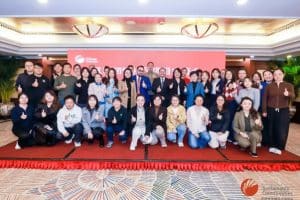In November 2017, the Administrative Measures for Anti-Money Laundering and Counter-Terrorist Financing of Social Organizations (the “Old Regulation”) mandated that social organizations were obligated to prevent money laundering and terrorist financing. In May 2025, the Administrative Measures for Counter-Terrorist Financing of Social Organizations (the “New Regulation”) will come into effect, representing a major reform of the Old Regulation.
Some key highlights of the New Regulation that social organizations should pay close attention to include:
Remove of Anti-Money Laundering Provisions for social organizations
According to data released by the Ministry of Civil Affairs in April 2025, China has a total of 873,000 registered social organizations. However, the risk of money laundering within this sector has remained low. Therefore, it is considered reasonable to reduce the compliance burden and associated costs for social organizations. The Financial Action Task Force (FATF), one of the most authoritative international bodies in the field of anti-money laundering and counter-terrorist financing, is widely recognized for its risk-based approach. China became a formal member of FATF in 2007. According to FATF’s recommendations, not all non-profit organizations are considered high-risk, and measures to mitigate money laundering and terrorist financing risks should be proportionate to the level of risks identified. As early as December 2024, the People’s Bank of China, together with the Ministry of Civil Affairs, explicitly announced that unnecessary regulations would be reduced. In line with international standards, this includes removing requirements such as the establishment of internal anti-money laundering control systems and the obligation for social organizations to report suspicious transactions related to money laundering, in order to further promote their healthy development.
Exclusion of “Foreign Chambers of Commerce” from the Scope of Applicable Social Organizations, Clarifying Domestic and Foreign Regulatory Boundaries
Article 2 of the Old Regulation defined “social organizations” as social groups, foundations, social service institutions (private non-enterprise units), and foreign chambers of commerce registered within the People’s Republic of China.
Under the New Regulation, “foreign chambers of commerce” have been removed from the list of applicable social organizations, aligning with the current framework for managing social organizations and reflecting a more open and inclusive regulatory approach. However, this does not mean that foreign chambers of commerce are exempt from regulation. If a foreign chamber of commerce is identified as a foreign NGO, it must still comply with the Law on the Administration of Activities of Overseas Non-Governmental Organizations within the Territory of China (the “INGO Law”).
Article 44 of the INGO Law clearly stipulates that the administrative authority for anti-money laundering under the State Council is responsible for supervising and managing the compliance of foreign NGO representative offices with anti-money laundering and counter-terrorist financing laws.
Article 11 of the New Regulation emphasizes that when social organizations cooperate with foreign non-profit organizations within China, they must comply with the relevant provisions of the INGO Law.
Clarification and Relaxation of Compliance Obligations for Social Organizations in Counter-Terrorist Financing
The New Regulation stipulates that social organizations should adopt terrorist financing risk management measures in three key areas: formulating counter-terrorist financing risk management policies, strengthening internal controls and financial management systems, and conducting customer due diligence on foreign non-profit organizations involved in cooperation. These provisions are designed to reduce the compliance burden on social organizations to varying degrees. Specifically, the New Regulation maintains that when a social organization establishes a partnership or conducts fund transactions with a foreign non-profit organization, it must take reasonable measures to verify the foreign organization’s identity, operations, qualifications, and reputation. To prevent exploitation by terrorist groups or individuals, further assessments of the foreign organization’s ability to use funds for charitable purposes is also required. Additionally, the New Regulation removes the requirement to explicitly outline anti-money laundering and counter-terrorist financing responsibilities in written agreements between domestic and foreign organizations, granting social organizations greater flexibility and autonomy in managing cross-border transactions.
In summary, the implementation of the Administrative Measures for Counter-Terrorist Financing of Social Organizations highlights the progress and effectiveness of China’s recent governance efforts in anti-money laundering and counter-terrorist financing within the social organization sector.
However, the removal of “anti-money laundering” requirements has significantly reduced the financial regulatory obligations for social organizations, it does not mean that they can afford to be less vigilant, especially given the potential challenges posed by the updated regulations. Social organizations must continue to strengthen their risk awareness, enhance internal controls and financial management, and ensure that financial transactions are conducted through legal channels. Particular attention should be given to cross-border transactions, and when necessary, professional support is recommended.



